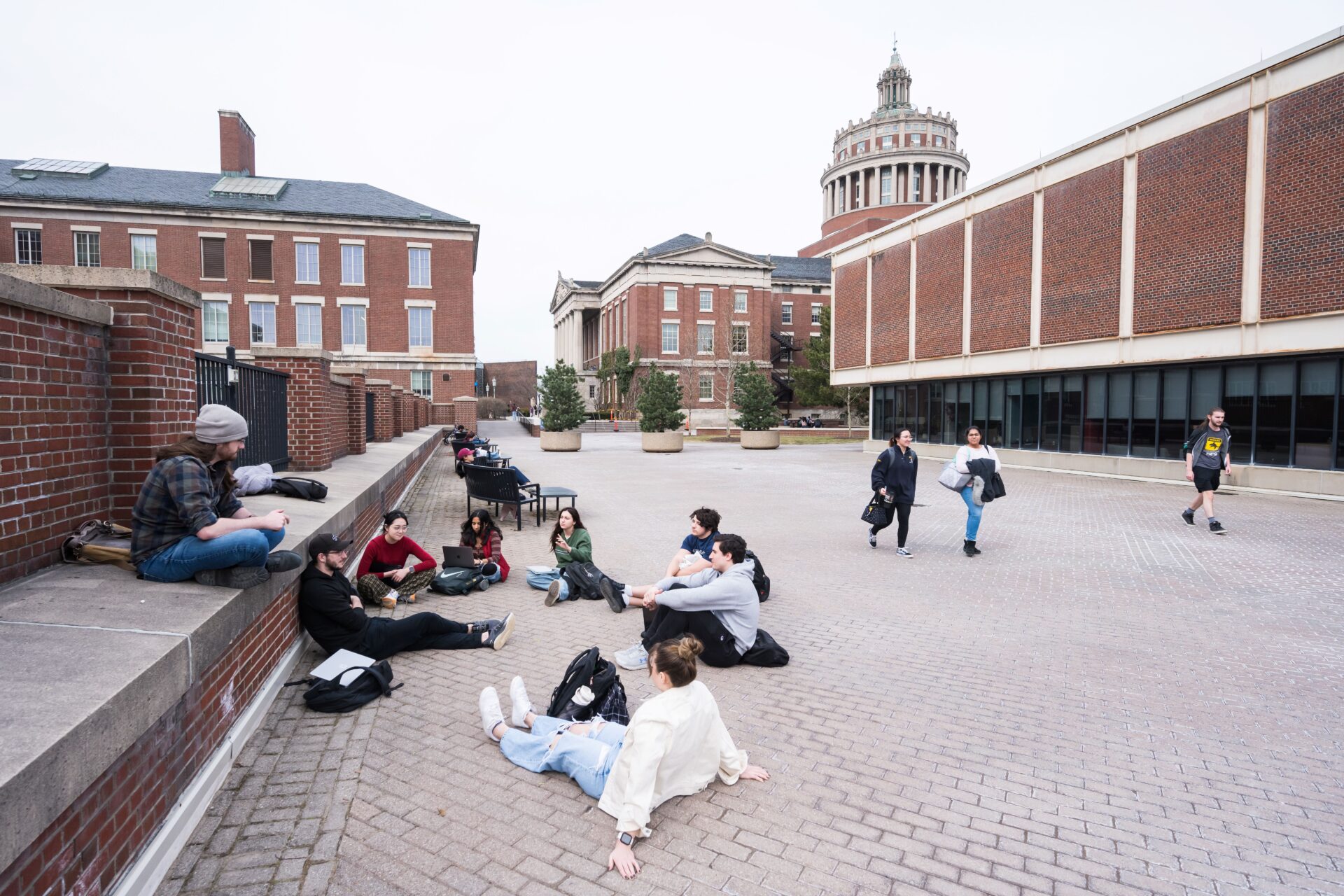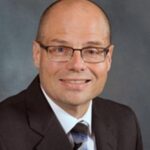University professors may seem more intimidating to connect with compared to high school teachers. Professors are people who want their students to succeed and grow throughout their class, and Dr. Daniel W. Mruzek is no exception.
Dr. Mruzek is not only a Senior Lecturer in the Psychology and Brain and Cognitive Science departments on River Campus, but he also operates his own clinic at the Golisano Autism Center, provides school-based consultation on intellectual and developmental disabilities, and has an appointment as Associate Professor at the Medical Center in Pediatrics. On top if that, he provides consultation to legal teams around the country.
On the River Campus, he teaches several courses, including Autism and Other Intellectual Disabilities, Child Development, Lab in Development and Learning, Development of Mind and Brain, Psychopathology, and Research Methods in Psychology.
What was Dr. Mruzek’s career path?
While in high school, Dr. Mruzek discovered his passion for serving people with autism spectrum disorder and other intellectual and developmental disabilities through volunteer work. After attending the University of Toledo for his undergraduate degree, he went to Ohio State University to earn his master’s and PhD in Psychology.
After receiving his PhD what did Dr. Mruzek do?
Before coming to the University of Rochester, he taught at Providence College, the University of Rhode Island, and Otterbein University, as well as maintained an active clinical practice, particularly as relates to autism spectrum disorder. He then received his appointment at the University of Rochester Medical Center in the Pediatrics Department, as well as a professor in the Psychology and Brain and Cognitive Science departments on River Campus.
Of all of the schools Dr. Mruzek has been to, what has been his favorite?
The University of Rochester is by far his favorite. One of the reasons why it is his favorite is because of the students. Because of the open curriculum, students are in a course because they are interested in the material. The students ask questions and provide feedback on lectures, which Dr. Mruzek enjoys. The students will also come to him during office hours to talk about course-related material and also just to talk to him. The engaged students are one of the reasons why Dr. Mruzek enjoys being at the University of Rochester.
Besides the students, why does Dr. Mruzek like the University of Rochester?
He has the freedom to develop courses the way he wants to teach the course. By having his own clinic and having been in the field for decades, he has seen the entire Autism spectrum disorder landscape shift from a small population of people who are diagnosed with autism to a large one. He can share these clinical experiences, as well as personal/professional experiences with his students in class.
Why did Dr. Mruzek choose to be a professor?
At first, he wanted to become a high school teacher, so he was originally an education major. He then thought that he could teach at the university level and pair that with his interest in research. Since he was interested in clinical research, he got into a doctoral program at Ohio State University. He combined his clinical work and passion for teaching to become a professor.
Why does Dr. Mruzek enjoy teaching?
He enjoys helping students succeed and achieve their personal goals. He likes to talk with students about course material and likes to get to know his students. Talking with students is his favorite part of teaching. Although some of his courses may have difficult scientific topics, he breaks these topics down for students to understand easily. To make his courses interesting, he shares stories about his experiences and makes jokes during class. He points out that some of his jokes are even funny.
How does Dr. Mruzek think his current clinical experience helps him in the classroom?
As a clinician, he is trained to find the strengths in each student. When he gets to know a student, he will point out his or her strengths to encourage them. This helps the students know what they are doing correctly. Dr. Mruzek’s clinical experience also helps him when helping students do well in his courses. Each person has their own strengths and weaknesses, so there are multiple ways of doing well and studying. A student does not have to study the same way as another student to do well, so based on his clinical experience, he helps students figure out the best way to study for the class based on their strengths and weaknesses.
For Dr. Mruzek, what has his experience been like in both the Psychology and the Brain and Cognitive Science departments?
His experience has been “terrific.” He has friends in both departments, and there are a variety of insights and perspectives from professors in both departments. The faculty’s studies in both departments are diverse in content. The faculty can reflect on their rich experience in a classroom and work collaboratively to help students succeed. There are more resources available to him as a professor in both departments, so he can bring more to the classroom.
What does Dr. Mruzek like when his students do?
Since he enjoys spending time with others, he enjoys when his students come and visit him during his office hours. Office hours are where he gets to know his students better than in a lecture hall. He can to catch up with them and talk about the field. He helps them prepare for their future careers in any way he can.
If Dr. Mruzek were a first-year student at the University of Rochester, what resources would he utilize?
Dr. Mruzek would create a study plan and would be disciplined to study regularly, so he would not cram material the night before a test. He would take advantage of his professors’ office hours and get to know them. Professors are just people and want to help their students. He would see what his professors like and would engage with them that way. He would also join clubs to get to know other students, since socializing is an important aspect of college. He would pick a few clubs to really take advantage of to have opportunities to be a leader.
What would be Dr. Mruzek’s number one piece of advice for students?
Dr. Mruzek would say to keep an open mind. Students should cast a wide net regarding what they study, and they should be open to a variety of experiences. Students should especially allow that freedom in the first and second years of college to explore all different paths of how they can make a difference in the world. College is a time to explore academic interests, so he would advise students to give themselves a chance to explore a variety of academic areas.
By getting to know Dr. Mruzek, it is clear that he cares about his students’ success. His passion for teaching, approachable nature, and commitment to supporting students inside and outside of the classroom are also clear. Building connections and getting to know professors like Dr. Mruzek can enhance experiences in courses to succeed not only in the course but also in a desired field. Professors are not only mentors to achieve goals but are also allies in an academic journey to become “ever better.”


